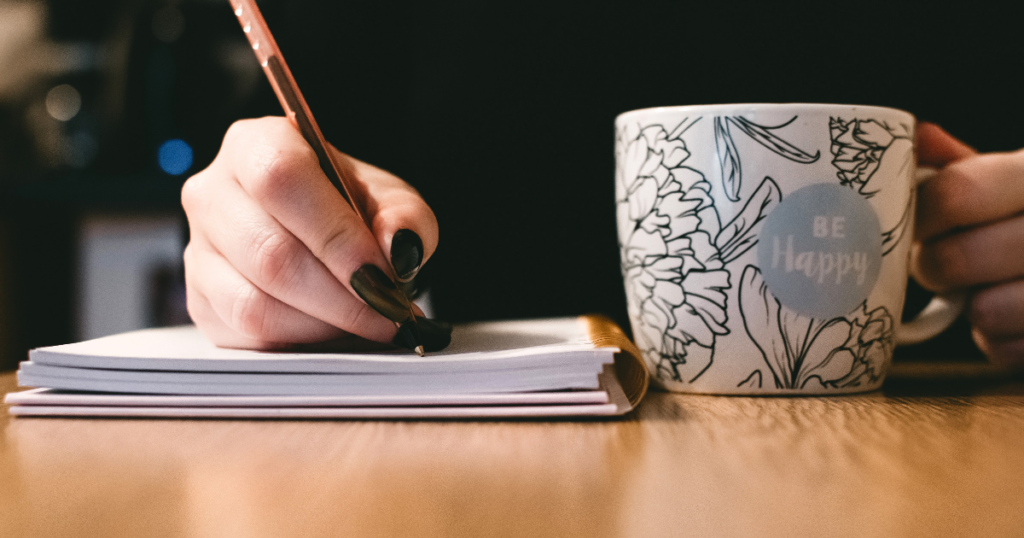- Cloud 9 Acupuncture & Integrative Medicine22 West Padonia Rd. Suite A-203
Timonium, MD 21093 Follow Us!
Stress
Acupuncture: The Original Biohack for Migraines

Having recurring migraines is similar to parenting a temperamental toddler. When they go from being annoying to actively disruptive and mildly infuriating, there is often little one can do but grit your teeth and persevere. The helpful suggestions for managing this occurrence involved a mixture of expert opinion, anecdotal hearsay, individual tinkering and a big dose of patience. So where does acupuncture fit into this picture? continue reading
5 Acupoints to Help You Navigate Your Stress This Winter

There are several acupressure points that are known to treat stress and stress related symptoms. It’s important to understand that acupressure is not the only form of treatment and having a balanced diet, exercise regime and lifestyle will also decrease the chances of stress being a factor in your life. continue reading
Workplace Wellness: Practicing Self-Care in the Office
There’s no doubt that if you’re a professional, you’ve experienced a level of stress at some point in your career. It can be distracting and impact your productivity. That stress could even spill over into your life at home. However, remembering to practice self-care — even in the office — can be an effective way to regain your motivation and joy in the work that you do.
Delegate Tasks Effectively

If you work with a team of co-workers or if you’re the leader in your department, don’t hesitate to delegate tasks to your supporting members. For some people, it can be a challenge to ask for help. Some professionals may even feel awkward, giving others a job to do. However, if you pile up all these duties, you may find yourself overwhelmed and stressed. Effective delegation is the ideal way to keep things organized throughout your workday. You can consider it a practice in self-care because you’ll be placing a higher value on your time and the way you spend your energy. You were hired for a purpose, and you won’t be able to fulfill it if you’re exhausted and depleted.
Find Ways to Stay Active
Staying active is a great way to increase your energy and maintain a positive attitude. If you work in an office setting, sitting in a chair for several hours at a time could leave you feeling stiff, sore, and even unmotivated. Consider adding an activity schedule to your day. You can start by setting an alarm on your phone that reminds you to stand up and stretch. You could even use that time to get up and take a walk around the building. Many professionals use standing desks that allow them to elevate their work so that they can complete it from a standing position. This allows for better circulation through the body. It will also allow you to stretch your legs while maintaining productivity.
Incorporate Team Building

Workplace wellness is about more than just being productive in the office. Sometimes getting out of the office and participating in team-building exercises is a great way to boost morale and encourage more collaboration and communication among co-workers. Consider planning a relaxing nature walk or something more active, like laser tag. These activities are great for breaking up your daily routine and disrupting the monotony of the 40-hour workweek.
Take Advantage of PTO
There’s a reason paid time off is considered part of your benefits package. Your employers expect you to take advantage of this time. Therefore, don’t feel bad about leaving work on your desk and your co-workers in the office when you use this time. Having the opportunity to decompress and spend time doing other things that you enjoy is incredibly important to your self-care routine. Take another look at the explanation of your benefits package so that you’ll know how many paid days off you get. For some companies, those days may carry over to the following year; however, this isn’t always the case.
Propose and Initiate a Wellness Program
Consider taking some initiative and planning a wellness program for your office. It’s a way to encourage self-care throughout the office to ensure that you can work in an atmosphere where everyone is prioritizing their mental and physical health. Propose fitness challenges where the person that walks or bikes the most miles in a month gets a prize. It could also include a healthy potluck. Suggest other methods of self-care to your co-workers, like massages, acupuncture, or even meditation, which can be done as a group.
The Differences Between the Types of Headaches
Experiencing the pain of a headache can be immobilizing. This is especially true if you find yourself having regular headaches. Headache pain can cause light sensitivity, restlessness, and even nauseousness. Understanding the differences between each type of headache is crucial for determining the appropriate treatment.

Tension Headaches
When you feel a dull yet constant pain on both sides of your temples, you could be experiencing a tension headache. They cause facial tenderness and pressure behind the eyes. You may also feel sensitivity to light and sound. Tension headaches are the most common type and last from 30 minutes and up to several hours.
Cluster Headaches
Cluster headaches get their name from their frequent occurrence throughout a day. Someone who suffers from cluster headaches will experience severe pain up to eight times in one day. They are more likely to occur in women. Symptoms include intense burning behind the eye, a swollen eyelid, and a stuffed or runny nose.
Migraine Headaches
Of the types of headaches on this list, migraines are typically the most well known although not necessarily the most common. If you’re having a migraine, you’ll feel a throbbing pain on one side of your head. You may also feel nauseous, sensitivity to light and sound, and difficulty speaking. Some migraine attacks can last up to three days.
Exertion Headaches
If you’ve recently participated in some form of strenuous physical activity and then have throbbing pain, you are experiencing an exertion headache. They are usually triggered by running, jumping, lifting weights, and even coughing. Exertion headaches are generally short-lived, but they can last up to two days.
Sinus Headaches
People who have seasonal allergies may also have sinus headaches. They also happen as a result of sinus infections and swelling. Symptoms include a dull, throbbing pain around the eyes and forehead. These are one of the rarest types of headaches but are often accompanied by fever, nausea, and light and sound sensitivity.
Caffeine or Hangover Headaches
Did you know that what you drink can also contribute to headaches? Caffeine-related headaches are typically accompanied by tiredness, irritability, and difficulty concentrating. They can last for up to an hour. Hangover headaches happen as a result of consuming too much alcohol. The next morning, you may wake up to throbbing pain that mimics the feel of a migraine. The amount of caffeine or alcohol that contributes to these headaches varies.

Treating Headaches with Acupuncture
As it relates to traditional Chinese medicine, acupuncture is a practice that helps restore the whole body. When treating headaches, acupuncture balances the hormone regulators and endocrine system by relaxing our nervous system. During your session, acupuncture will release endorphins and other hormones that help relieve headache symptoms. If you regularly experience one of the types of headaches discussed, establishing a routine treatment plan will help to significantly reduce the frequency, duration and severity of the pain you receive from your headaches. Cloud 9 Acupuncture has a 90% success rate with treating the pain and discomfort associated with headaches.
How to Create a Self-Care Plan
What is a Self-Care Plan and Why You Should Create One
With a growing focus on mental health in the public sphere, you’ve likely encountered references to individuals creating a “self-care plan.” A self-care plan is a coping mechanism that keeps you from being overwhelmed by life’s sometimes chaotic nature. It’s also a proactive measure that you design. It’s filled with activities that bring you joy, reminders of your self-worth, as well as ways to tap into your support network. Below are three reasons why investing in a self-care plan ahead of time is essential:
1) A customized self-care plan is empowering. Take some time to look within first; you’ll know what things in life bring on stress and what things make it melt away. Through this self-reflection, you’ll have the foundations for developing your self-care plan and having it written down offers a safety net for the moments when you need it most.
2) Self-care plans help you respond, not react in moments of crisis. In terms of mindfulness, a self-care plan allows you to respond to situations versus simply reacting. Creating a plan ahead of time, therefore, empowers you to feel more in control of your life and avoid becoming overwhelmed by it. Likewise, you’ll be in a better position to know what type of outside help you might need and where to go for it.
3) Developing a plan helps keep you on track. A tangible, clearly laid-out strategy keeps you accountable and motivated to build new, positive routines. Knowing what you need to do when things get tough should also prevent you from making excuses and defaulting to old habits.

How to Create Your Self-Plan
Now that you better understand the importance of creating a self-care plan, it’s time to bring your own to life. Remember: this is a course of action that you take everywhere and seeks to balance your physical and emotional needs. The plan can also include resources that you can rely on and reminders about your personal goals.
Build your self-care plan by following these steps:
Step 1: Write down an activity list that shows the different components of your life. To get you started, here are a few example areas to focus on:
- Your day job
- Your relationships: romantic, platonic, family, community
- Your physical activity
- Your internal thoughts
When this list is complete, you’ll want to add activities that you enjoy, bring happiness, and wellbeing to each space in your life. Sample activities include downloading a meditation app for your phone, meal prepping, keeping a gratitude journal, working with a therapist, or scheduling recurring acupuncture sessions.
Step 2: Write down the things that might get in your way. Afterward, devote some time to figuring out potential ways to address these barriers positively. An example would be if you’re in the habit of negative self-talk, take 5 minutes each morning to write down 3 good things about yourself. Over time these “shifts” in thinking and action will build to even larger life changes and you being well-suited to handle future stressful situations.
Step 3: Share your plan with your support network. Once your self-care plan is complete, send a copy to the people you trust most and are willing to help keep you accountable. You may also want to encourage these individuals to develop their own and share them with you.
Sticking to Your Self-Care Plan
For your self-care plan to be successful, you’ll need to commit to regularly acting on it. We know this is easier said than done, but we encourage you to be empathetic towards yourself and give yourself time to build new habits. Yes, there’ll likely be times where you slip back into past responses; this is okay and natural. When these moments do arise, be kind to yourself and use it as a chance to refocus.
Here are a few ways you can set yourself up for success when implementing a self-care plan:
- Set daily reminders on your phone to do something that brings you joy
- Meet up regularly with your accountability partner
- Bring your plan to life through drawings, photo collages, or another visual medium
- Schedule recurring appointments that contribute to your well-being, such as acupuncture or gym workouts
- When you do falter, take a moment to reset with 5 deep breaths and visualizing your best self
- Reward yourself when you’ve stuck to a part of your plan for a certain number of days, weeks, months, etc.